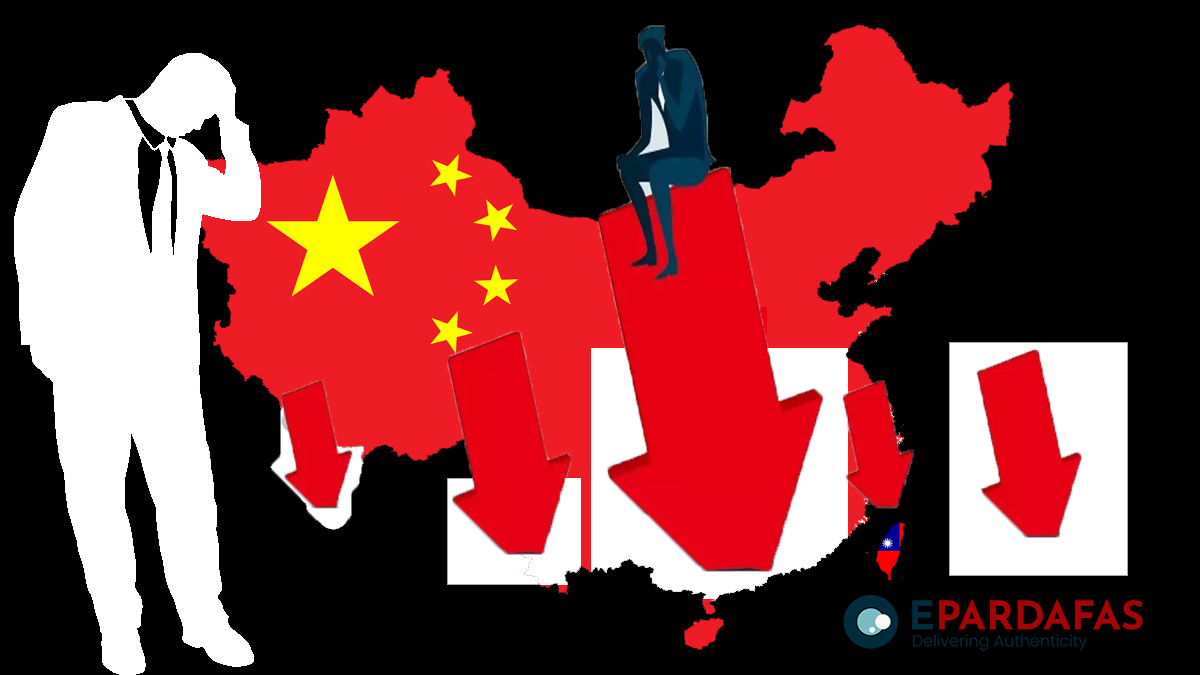
Introduction:
In a significant development, China’s Zhongzhi Enterprise Group, a leading wealth manager, has recently revealed its insolvency with a staggering $64 billion in liabilities. This announcement raises concerns about the spillover effect of the country’s property debt crisis into the broader financial sector. In this analysis, we will explore the implications of this news, evaluate the potential impacts on various stakeholders, and provide insights into the short-term and long-term outcomes.
Original Analysis:
The disclosure of Zhongzhi’s insolvency sends shockwaves through the financial industry, as it highlights the fragility of China’s highly indebted property sector. The company’s exposure to the real estate market has resulted in significant liabilities, far surpassing its estimated total assets. This revelation could lead to a loss of investor confidence, potentially triggering a chain reaction in the financial markets.
Impact on Retail Investors:
Retail investors who have invested in Zhongzhi or its affiliated products may face substantial losses. The insolvency of a major wealth manager like Zhongzhi underscores the importance of conducting thorough due diligence before investing. This news serves as a reminder for retail investors to carefully assess the financial stability and risk exposure of companies they invest in, especially those operating in sectors facing significant challenges.
Impact on Industries:
The news of Zhongzhi’s insolvency could have a ripple effect on various industries. The real estate sector, already grappling with liquidity issues, may experience further declines as investors become more cautious. The shadow banking sector, where Zhongzhi operates, might face increased scrutiny and regulatory intervention. Additionally, industries dependent on the real estate market, such as construction, materials, and consumer goods, could witness a slowdown in demand.
Long-Term Benefits & Negatives:
In the long term, the disclosure of Zhongzhi’s insolvency may lead to stricter regulations and oversight in China’s financial sector. This could enhance transparency and reduce the risks associated with shadow banking activities. However, the negative impact on investor confidence and the potential contagion effect may result in a more cautious investment environment, slowing down economic growth.
Short-Term Benefits & Negatives:
In the short term, the news could prompt regulators to intervene swiftly to contain the fallout and prevent a systemic crisis. This immediate response may provide some stability to the financial markets. However, the short-term negative effects may include increased market volatility, potential liquidity crunches, and a decline in investor sentiment.
Companies that May Benefit:
Companies involved in distressed asset management and debt restructuring may find opportunities arising from the fallout of Zhongzhi’s insolvency. Financial institutions with strong risk management practices and diversified portfolios could also gain as investors seek safer investment options.
Companies that May Lose:
Companies associated with the real estate sector, particularly those heavily reliant on the Chinese market, may face difficulties as the sector grapples with its ongoing debt crisis. Similarly, businesses with significant exposure to shadow banking activities might see increased scrutiny and potential losses.
Additional Insights:
This situation highlights the importance of robust risk management practices and diversification for both companies and investors. It also emphasizes the need for regulatory reforms to address the vulnerabilities in China’s financial sector and prevent future crises.
Conclusion:
The insolvency of Zhongzhi Enterprise Group with its substantial liabilities has raised concerns about the spillover effect on China’s broader financial sector. This news has significant implications for retail investors, industries dependent on real estate, and the stability of China’s financial markets. While the long-term outcomes remain uncertain, it is crucial for stakeholders to remain vigilant and adapt to the evolving situation.
Citation:
Reuters. “Realty Spillover? China’s Zhongzhi Flags Insolvency with $64B Liability.” Economic Times, 24 Nov. 2023, economictimes.indiatimes.com/epaper/delhicapital/2023/nov/24/et-efm/realty-spillover-chinas-zhongzhi-flags-insolvency-with-64b-liability/articleshow/105455257.cms.